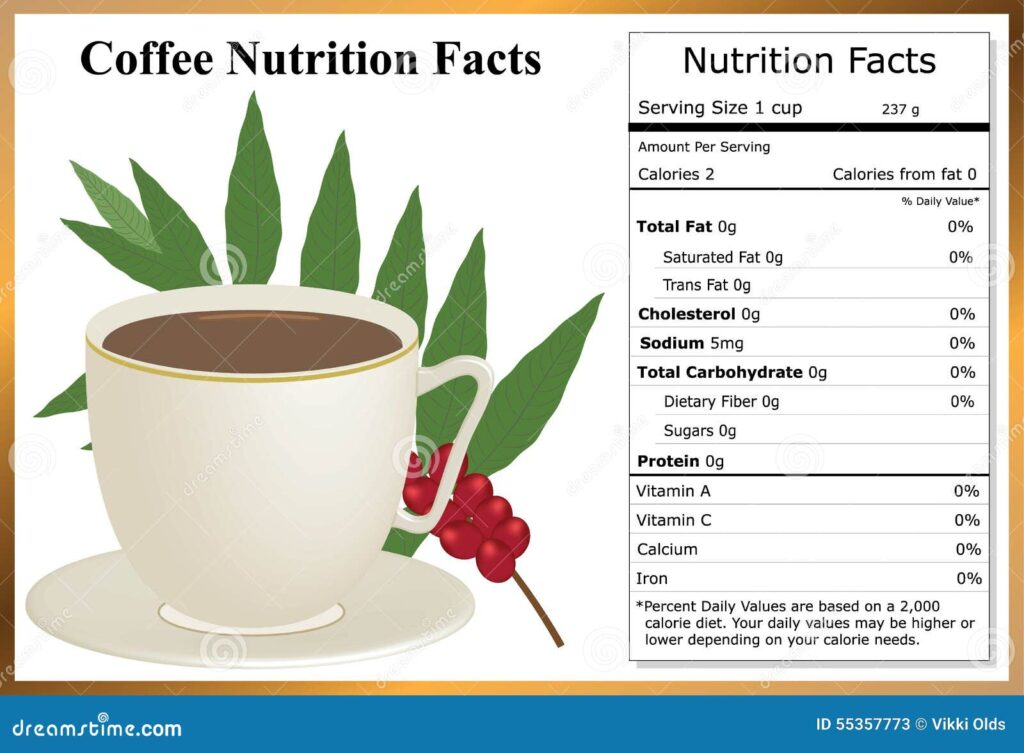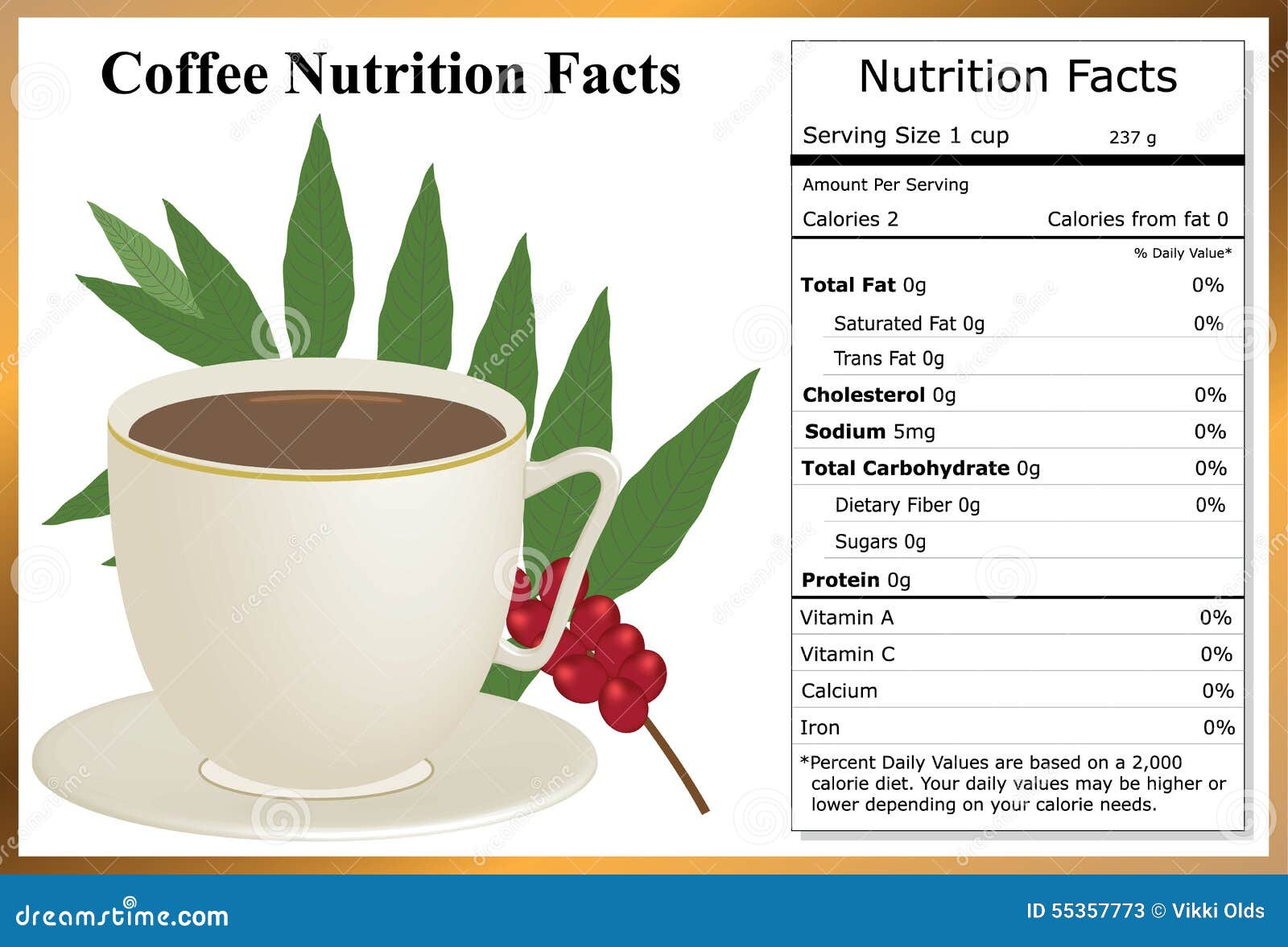
The Calorie Count: How Many Calories Are in a Cup of Black Coffee?
For many, the aroma of freshly brewed coffee signals the start of a productive day. Whether enjoyed at home, in a bustling cafe, or while working remotely, a cup of coffee is a ritual for millions. But beyond the caffeine kick, a common question arises: How many calories are in a cup of black coffee? The answer, surprisingly, is quite straightforward, but understanding the nuances can help you make informed choices about your daily caffeine consumption and overall health.
The Simple Answer: A Calorie-Light Beverage
The good news for coffee lovers is that a standard cup of black coffee contains very few calories. Generally, an eight-ounce cup of black coffee has an estimated 2 calories. This minimal caloric value makes black coffee an excellent choice for those watching their weight or looking for a low-calorie beverage. It’s a far cry from the calorie-laden specialty coffee drinks that often dominate coffee shop menus.
Factors Affecting Calorie Content
While the base of black coffee is low in calories, it’s essential to consider what you add to your cup. These additions can significantly alter the caloric content.
- Sugar: A teaspoon of sugar adds approximately 16 calories. Depending on how many teaspoons you add, the calorie count can quickly escalate.
- Milk and Cream: The calories in milk and cream vary depending on the type and amount. For instance, a splash of whole milk adds more calories than a splash of skim milk or a non-dairy alternative like almond or soy milk. Heavy cream will, of course, add significantly more calories.
- Flavorings: Syrups and other flavorings, like those commonly used in flavored lattes and mochas, are often high in sugar and calories.
- Other Additives: Whipped cream, chocolate shavings, and other toppings can also contribute to a higher calorie count.
Comparing Coffee Beverages: A Calorie Breakdown
To illustrate how additions impact the calorie count, consider these examples:
- Black Coffee (8 oz): Approximately 2 calories.
- Coffee with Sugar (8 oz): 18 calories (based on one teaspoon of sugar).
- Latte (12 oz): 100-200 calories or more, depending on milk type and added sugar.
- Mocha (12 oz): 250 calories or more, due to added chocolate and whipped cream.
This comparison highlights the importance of being mindful of what you add to your coffee. A simple switch, such as using a sugar substitute or opting for a non-dairy milk alternative, can significantly reduce your daily calorie intake.
Beyond Calories: Health Benefits of Black Coffee
Aside from its low calorie content, black coffee offers several potential health benefits:
- Rich in Antioxidants: Coffee is a significant source of antioxidants, which can help protect your body from damage caused by free radicals.
- Improved Cognitive Function: Caffeine can enhance alertness, focus, and memory.
- Potential for Physical Performance: Caffeine can improve physical performance by increasing adrenaline levels.
- May Reduce the Risk of Certain Diseases: Some studies suggest that coffee consumption may be associated with a reduced risk of type 2 diabetes, Parkinson’s disease, and liver disease. [See also: Coffee’s Impact on Cognitive Function]
Making Informed Choices for Your Coffee Consumption
Understanding the calorie count of your coffee is a crucial step in making informed choices about your diet and overall health. Here are some tips:
- Drink Black Coffee: The simplest way to keep your coffee low in calories is to drink it black.
- Be Mindful of Additives: If you prefer milk or sugar, measure the amount carefully and consider using alternatives.
- Read Nutrition Information: When ordering at coffee shops, review the nutrition information to understand the calorie content of your drink.
- Experiment with Alternatives: Try unsweetened almond milk, soy milk, or sugar substitutes to reduce calories without sacrificing flavor.
- Brew at Home: Brewing your own coffee allows you to control the ingredients and calorie content.
The Takeaway: Enjoy Your Coffee Wisely
In conclusion, the calories in a cup of black coffee are minimal, making it a guilt-free pleasure for many. However, the additions you make to your coffee can significantly impact its calorie content. By being mindful of your choices and understanding the nutritional information, you can enjoy your coffee while still maintaining a healthy lifestyle. The key is to be informed, make smart choices, and savor the rich, satisfying taste of a well-brewed cup of coffee.
Frequently Asked Questions About Coffee Calories
Here are answers to some common questions about coffee calories:
- Does the roasting process affect the calorie count? No, the roasting process does not significantly impact the calorie content of coffee beans.
- Does decaf coffee have fewer calories? The calorie count is similar for both regular and decaf coffee. The difference is primarily in the caffeine content.
- Are there any hidden calories in coffee? The coffee itself has very few hidden calories. However, additives like flavored syrups can add a significant number of calories without you realizing it.
- How many calories are in a double shot of espresso? A double shot of espresso typically contains approximately 2 calories.
- Can coffee help with weight loss? Black coffee, due to its low calorie content and potential to boost metabolism, can be part of a weight loss strategy. However, it’s not a magic bullet and should be combined with a healthy diet and exercise.
By understanding the calories in a cup of black coffee and the impact of different additions, you can make informed choices that align with your health goals. So, go ahead and enjoy that cup of coffee – just remember to be mindful of what you put in it!
[See also: Coffee vs. Tea: A Nutritional Comparison]


